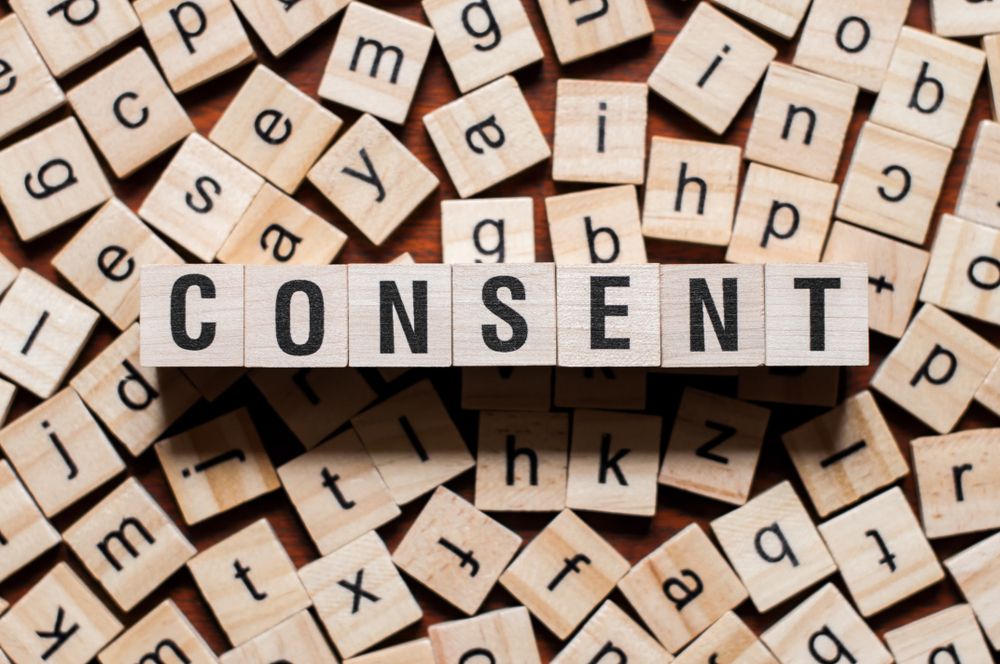Teaching Consent to Children
Sometimes, as a parent, you have to discuss difficult topics with your children. One of those topics is consent and touching, and it’s crucial to begin the conversation as early as possible to avoid future danger.
Unfortunately, you cannot watch your kids every moment of every day. Especially at school or on the playground. We’re sure you remember when you were a kid and were both curious and eager to please. We are trained from a young age to respect and trust adults, which can lead to harmful situations in which children do not feel like they can say no.
That’s why it’s so easy for sex offenders, adults, and even other kids to approach children and begin a conversation. Statistics on child sexual abuse show that as many as twenty-eight percent of children will experience some form of harassment or inappropriate touching between the ages of seven and thirteen.
Knowing this, it becomes more important with every passing year to educate, inform, and prepare children to deal with sexual abuse from adults, peers, and even family members.
Start the Conversation
Teach Them They Can Say ‘No’
Rather than waiting for something bad to happen, it’s always best to get ahead of the situation and talk with your kids. We know how important it is to give kids the benefit of the doubt and always remember that they’re smarter than we give them credit for.
Children are perfectly capable of understanding topics like unwanted touching and consent, so the best thing you can do for them is to begin the conversation by asking them if they’ve experienced anything like this already.
If not, you can decide how detailed you want to get in your explanations. While it’s not necessary to describe everything that could potentially happen, it’s fairly easy to outline the situations that your kids should avoid.
Go through scenarios like:
Unfamiliar adults or strangers talking to you
Online bullying or requests to meet
Requests for naked or risque pictures
Adults or peers touching you without permission
Repeated attempts to touch or kiss you
Attempts to get you alone somewhere
Requests to discuss sexual topics
Too much touching or closeness
Talking about or showing you pornography
This is by no means a comprehensive list of ways that children can be abused. However, most situations can be avoided by just informing and preparing your kids for the possibility of unwanted sexual conduct.
When you discuss these topics with your kids, make sure they know that you are their main source of safety and aide. They may not feel comfortable coming forward to their teachers or friends about situations that have made them uncomfortable in the past, so do all you can to ensure they know you will not judge, shame, or reprimand them for something that has happened.
Finally, when talking with your kids about sexual harassment, the main thing you need to make sure they understand is that they are in control. While children are unable to properly give consent because they are underage, they still need to be able to say ‘no’.
There is almost never a situation in which saying ‘no’ can be misconstrued.
Teach Them to Ask Permission
Just as important as saying ‘no’ is, it’s also imperative for your kids to understand that they also have to ask permission of others in the same way they would want to be asked. Sometimes kids can be so friendly and eager that they will just hug people unannounced. Well, if the kid they’ve just hugged has received similar training about boundaries and consent, this might be unwelcome.
This is an easier conversation to have with your kids, and the best advice we can give is just to help them see things from their own perspective. Ask them if they would like someone to just run up and kiss, touch, or hug them without asking first. You may find that your kids understand this easily and will latch onto getting permission from everyone.
One final topic to discuss with kids is what to do if they’ve witnessed something inappropriate happen to someone else. This can be a touchy topic, which is why we’ll defer to the experts. There are many great resources when it comes to both helping your child who has witnessed sexual assault, as well as teaching them how to react when they’ve seen something they shouldn’t.
Provide Solutions
Now that your children know sexual assault is a possibility, it’s time to provide them with some metaphorical weapons in their arsenal to protect themselves. There are a few options when it comes to dealing with sexual predators and unwanted sexual attention, and it’s your job to help your kids remember them when the time comes.
First, thoroughly explain consent. “Consent cannot be given by individuals who are underage, intoxicated or incapacitated by drugs or alcohol, or asleep or unconscious. If someone agrees to an activity under pressure of intimidation or threat, that isn’t considered consent because it was not given freely.” – Rainn.org
Because underage children cannot give consent for any sexual activity, the best way you can arm your kids is to help them know to avoid situations in which they would need to give consent. They shouldn’t be alone with unknown adults or other children. They should not be messaging strangers or setting up meetings. You know which situations are dangerous, so make sure they know them too.
However, there are still many situations that your kids can say ‘no’ to.
These include:
Hugging
Kissing
Touching
Sending & receiving inappropriate pictures/videos
Invitations to meet
No child should have to accept every hug, hand hold, or touch from someone just because they’re an adult. If your children feel that they can say ‘no’ to people, this can prevent most of the worst sexual abuse.
The next thing you can teach them is to simply walk away. While they won’t always be able to walk away, either because they don’t have a mode of transportation or are in a place that prevents leaving, they can still create a physical boundary.
Lastly, teach your children how to involve an adult they trust. This can be a family member, teacher, or, for teens in the workplace, a supervisor. As long as your child feels like they don’t have to deal with this on their own, they can feel supported and safe.
How to Deal with the Worst
Despite your best efforts, child sexual abuse may still happen. The first thing to remember is that it’s not your fault. You cannot be everywhere, and you cannot prevent every eventuality. So, rather than spending time worrying and feeling guilt, the best thing you can do is to provide support, love, and help recovering.
Your child is already going through trauma right now. They may be feeling shame, confusion, and horror about whatever has happened to them, which is why your job as their parent is to help them through it to the best of your ability.
Again, we want to defer to experts when it comes to the psychology and science behind child sex abuse, so here are some great resources, steps to take, and books about helping your children recover from sexual abuse.
Stop It Now, a website dedicated to sexual trauma, has a great guide for parents
The Sexual Trauma Workbook
Rainn.org is a great resource for statistics and recovery options
Shattered by the Darkness
An Unimaginable Act
American Academy of Child and Adolescent Psychology has great resources for dealing with trauma
If your child has experienced unwanted touching or sexual abuse, you are not alone. Help them to the best of your ability by using these resources.
Follow Up
Finally, it’s important to remember that the effects of sexual abuse or trauma can last a very long time. Never assume that your child has fully recovered, and always be open to listening and adjusting to their needs.
You can check in with them every few months, weeks, or years even. Your child will appreciate knowing that you have never forgotten their trauma, and are determined to prevent future harm. Anything could trigger a negative response, and your child may feel afraid of certain situations or people.
You won’t be able to avoid everything, but you can help them feel secure by being their main source of safety and comfort. Check out this guide to see some actionable ways you can be there for your children.
Parenting isn’t always sunshine and rainbows. While we hope that your children never experience sexual abuse or are put in situations where they feel unsafe, the best thing you can do for them is to prepare them for the worst, then help and guide them through the aftermath.



